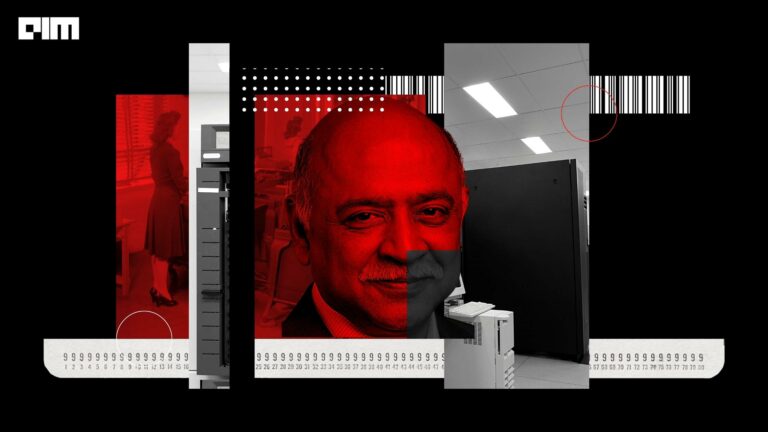|
Listen to this story
|
For Reena Dayal, ushering in innovation has always been the order of the day. She headed Microsoft Garage, the company’s global programme that promoted experimental projects, before heading the quantum computing division. Dayal moved into policy-making for quantum computing once she was appointed CEO of the non-profit Quantum Ecosystems Technology Council of India. The shift, Dayal says, has been seamless because of her initial interest in driving new technologies.
AIM: How has the shift been for you from working as the quantum computing head at Microsoft to getting involved in policy-making?
Dayal: It has been pretty simple. I studied electronics and communications engineering and spent most of my formative years working on system software communication technology, which is closer to hardware. Very early on, I started getting involved in industry associations. In the early 2000s, when storage networking was a new technology, I became a director on the Storage Networking Industry Association Board. So, I started understanding how the government works with industries.
In 2014, I received a scholarship from the British government and took a course in science, innovation and policy at Oxford. That was a formal education around policymaking. At Microsoft, I was heading innovation for India and was the director of The Garage in the company, during which I started to understand more about the quantum ecosystem.
AIM: With quantum computing gaining traction in India, what do the next five years look like?
Dayal: Overall, this is the second quantum revolution happening across the world. There was a lot of work in quantum physics in the previous century, and then suddenly in the past five to seven years, it has just accelerated. Different governments around the world are investing in pure-play quantum computing and just last year, the total value of investments in the field came up to USD 30 billion. This is aside from related areas like quantum physics, photonics or electronics.
The movement of quantum computing in India gathered pace after the government announced the National Quantum Mission which will entail an investment of USD 1.1 billion. Apart from that there are a bunch of other programmes running – DST ran a QuEST programme, which was funding research in institutes in the quantum space. The Indian army has set up a quantum computing lab and there is also a Centre of Excellence (CoE) based in Pune.
Around a year-and-a-half ago, we set up Quantum Ecosystems in India to enable and accelerate the ecosystem here. As seen with the past waves of technology, the talent here is really great and there’s nothing that cannot be accomplished. With that in mind, we had launched a hackathon incubation effort on August 15 for about 3 months and we got 128 projects with 37 of them actually reaching the final stage of prototype or proof of concept. Interestingly, there will be several startups coming out of this initiative.
There were plenty of submissions from abroad too but the winning team was from India, which was very encouraging.
Meanwhile, there have been efforts to educate the end-user industries like the financial services sector while maintaining the focus on security, because that is important. A lot of work has already been done around quantum communications and quantum sciences.
Traditionally, India has had a strong hold on photonics which we can definitely leverage. There are some Indian services companies which now have CoEs focusing on quantum solutions and some of these are large players.
What we need to do is build on this. We also need the end-user industries to become more aware and start investing in hiring the right kind of people within their organisations for the long run. From what we understand, startups that are getting formulated will essentially be from financial services and healthcare.
AIM: In the context of policymaking or even otherwise, where do you think can the Indian quantum ecosystem improve?
Dayal: Deep tech investors in India are typically not very aware of how to treat quantum computing startups. This is a gap area for us that we need to work on. There simply has to be more awareness. The awareness has to begin at the high-school level so that the students know what the options are as you move forward. The number of students taking up courses around phonetics etc have gone up. But we definitely need to add more scholarships for PhD students.
The second thing we need is capacity building. We need more labs with hardware and components for people to be able to experiment more. We also need to formulate clusters, which can support some of the efforts required for verticals within quantum, like making sensors for certain kinds of applications and encouraging cross-industry collaboration. So, it’s important to ask what quantum can do for space, and what it can do for digital communication infrastructure, or other infrastructure solutions.
AIM: What are some of the biggest changes that have marked the industry since quantum computing is still a very nascent field?
Dayal: The change has obviously been massive. Initially, people used to ask me what the term even means and now the fact that you are interviewing me about this means a lot. Five years ago, I would have to chase people to get them to talk about quantum. Personally, for me, it’s been a very interesting journey.
In the long run we also want to be an entity like the Data Security Council of India. It took us no time to find co-founders which was surprising for me, and then collaborating with academia. The government is also heavily involved and interested. Getting funding may still be a little tough, but overall I feel a lot of gratitude for the environment that has come up.
AIM: What are some of the key takeaways from your experience in the field?
Dayal: Quantum is one of those areas that stands precariously between hype and reality. So you really need to talk to the right people to know what’s what. There’s a lot of sensationalism in the media where reputed media companies have tried to project the power of quantum computing without understanding the facts.
Most people are of the opinion that quantum computing is a technology for our grandchildren’s generation but I know that things are moving faster than expected. There are aspects of quantum computing that can be leveraged today, so understanding the balance of ground realities is crucial.


















































































